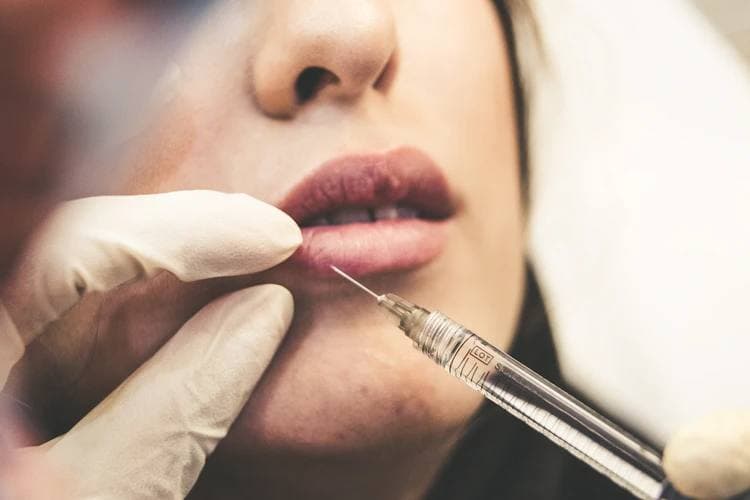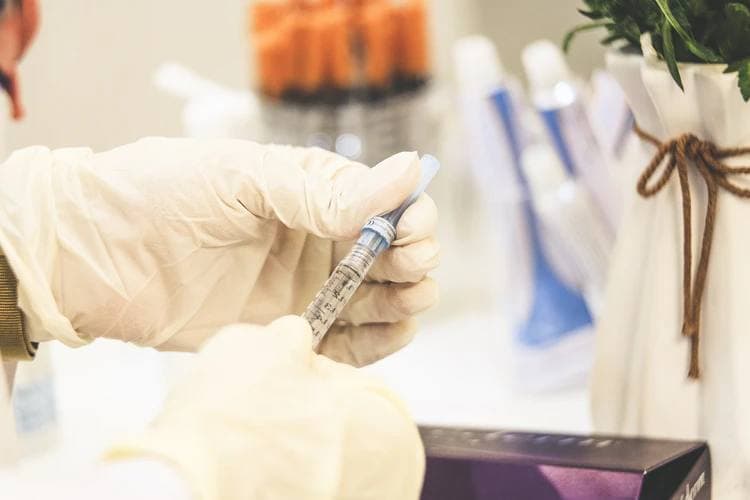Botulinum toxin, also known as Botox, has been used in medicine and cosmetology for a long time, but claims about its harm are not decreasing. We checked which of them are true and which are myths.
Botox is a neurotoxin that temporarily stops the transmission of signals between muscles and nerve endings. In fact, it is used not only in cosmetology. It is widely used in medicine in the treatment of diseases associated with muscle disorders, some paralysis, migraines, etc. But most statements about the dangers of Botox relate to cosmetic procedures to combat wrinkles and signs of aging.
- Botox atrophies muscles
Botox atrophies facial muscles, and it loses expressiveness.
Many people believe that Botox causes muscle atrophy and makes the face “stony”. This is partly true, partly not.
Regular use of Botox really affects muscle mobility and performance. If you don't use the muscles in your legs for 20 years, they will eventually shrink and weaken. The same can happen with the facial muscles.
“When you use [Botox] regularly over a long period of time without stopping, eventually the muscle will atrophy due to lack of work,” speaks dermatological surgeon Patricia Wexler. However, this does not mean that all your facial muscles will atrophy.
“Since Botox is injected into specific places on the face, in the end only these muscles atrophy, the rest remain completely fine,” Wexler adds.
Therefore, no, the face will not become “stony” from the use of Botox: there are a lot of muscles in the face that are responsible for facial expressions, and most of them do not receive Botox injections. In addition, if you stop the injections, the muscles will again will dial strength.
Half-truth
2. Botox can migrate and paralyze other muscles
Botox migrates into adjacent areas, causing paralysis of muscles for which it was not intended. The disastrous result is a drooping eyelid and a closed eye or deformation of the mouth muscles. Sometimes the drug accumulates in neighboring areas, causing an overdose and leading to swelling of the entire face.
This is true. In the 2000s went out row research, confirming that botulinum toxin can migrate from the injection site and paralyze muscle groups in other parts of the body. In 2016, speculation about possible migration confirmed one more article.
At the same time, study leader Edwin Chapman from the University of Wisconsin at Madison noted that such results require further research. After all, Botox preparations initially hit the market precisely because it was believed that botulinum toxin could not migrate to other parts of the body.
“The idea was that [Botox] was safe to use because it stayed where it was injected, so you didn’t have to worry about the toxin getting into the central nervous system and causing unpredictable consequences,” noticed researcher.
At the same time it is still countsthat in the case of migration we are talking about incomparably larger doses of Botox than those used in cosmetology. And for most people, Botox injections safe.
Mostly true

3. Botox can cause blindness
From Botox Can go blind.
This is wrong. In fact, there are studies showing that some cosmetic injection procedures can cause patients to go blind. For example, in 2012 in South Korea came out work showing that in four years (since 2008) due to poorly done injections of cosmetic fillers, 12 patients became partially or completely blind.
However, you need to understand that fillers and Botox are completely different things. Fillers are injectable implants that are a suspension similar in structure to a gel. For example, in South Korea they were talking about suspensions containing fat and hyaluronic acid. They are introduced to correct wrinkles and folds or restore lost tissue volumes. Such substances, if injected incorrectly, can enter the artery connected to the eye, and it is in this case gets lost vision.
Botulinum toxin is essentially poison. It cannot clog an artery, and it is administered in very small doses. It acts primarily on muscles and nerve endings, stopping communication between them. There are no studies that Botox can cause blindness.
Not true
4. Botulism will be fatal after Botox injections
After Botox injections for botulism won't work antidote.
There is an opinion that it is dangerous for those who have received Botox injections to later develop botulism - they say that the immune serum that is used to treat this disease will not work. But everything is not like that, quite the opposite. Botulinum toxin itself is produced by the bacteria Clostridium botulinum. It is this strong organic poison that enters the digestive system with contaminated food and causes botulism.
But you can also get botulism from Botox injections it is forbidden. Because in cosmetology, botulinum toxin immediately (since 1992) began to be used in a purified and highly diluted form - this is the so-called diluted botulinum toxin type A.
However, some cosmetologists notethat the effect may be the opposite: if you have had botulism, Botox injections will not work on you. The same thing happens if you develop antibodies (this happens in about 1% of cases).
Not true
5. Botox leads to blood clots
"Specialists claimthat when Botox comes into contact with an organic substance, its chemical composition changes, as a result of which the structure of the toxin becomes more liquid. The smallest particles of Botox easily enter the circulatory system and spread throughout the body. According to scientists, the substance can lead to the formation of blood clots, which, in turn, often causes the development of serious diseases, in particular stroke.”
Eat opinionthat Botox can lead to blood clots. Sometimes such conclusions attributed to the same 2016 University of Wisconsin study. Although it says coming only about the theoretical possibility of changing the consistency of Botox upon contact with an organic substance: only if the toxin acquires a liquid form can it, in theory, clog blood vessels.
There are currently no studies confirming the real possibility of blood clots due to Botox injections. It should be understood that botulinum toxin itself has been used in cosmetology for only about 30 years and its long-term effects on the body have not yet been possible to study.
In addition, after Botox injections, different side effects, and if the drug is administered incorrectly, you can seriously injure your face. Therefore, the procedure should be carried out under the supervision of a professional cosmetologist.
This is not accurate
- 7 Long-Term Effects of Botox You Need to Know
- Myths and truth about Botox
- Everything is frozen: when to inject Botox and can it cause harm?
- Cosmetic Injections: Can They Cause Blindness?
- Botulinum toxin study proves the possibility of remote effects
- More Evidence Suggests That Botox Can Spread From Its Injection Site
- Botox and Fillers Are Very Safe, Study Suggests
If you find a spelling or grammatical error, please let us know by highlighting the error text and clicking Ctrl+Enter.










